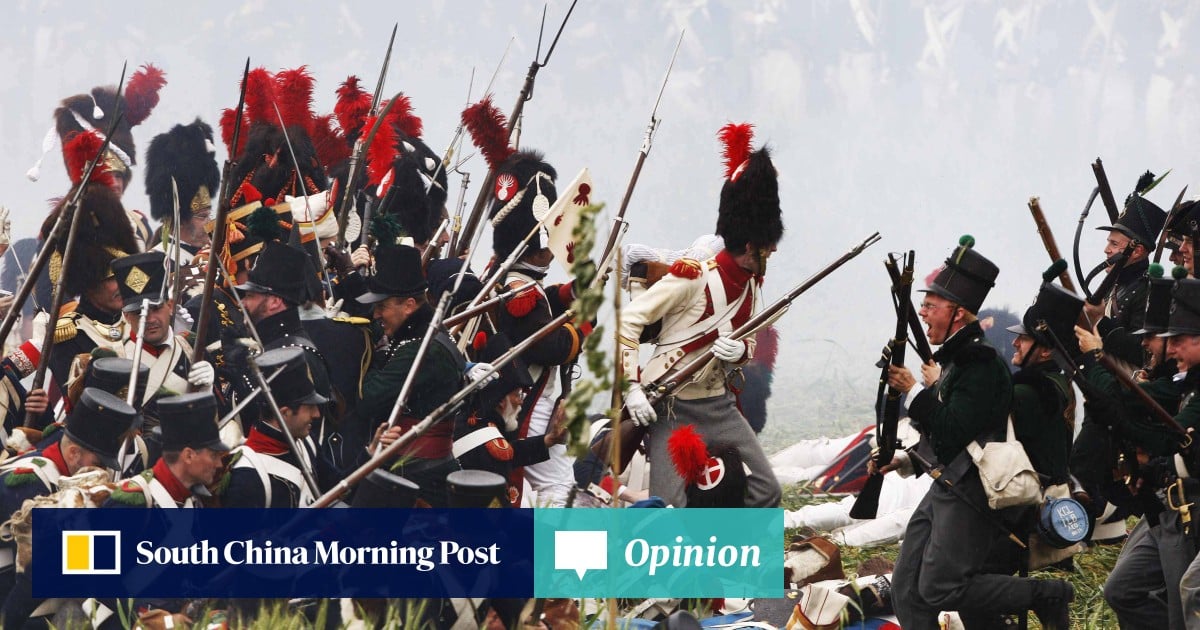The global landscape is witnessing shifts that prompt serious reflection, particularly for the United States. History teaches us that the ascent and decline of superpowers are intricately linked to the choices made by their leaders. The policies enacted during Donald Trump’s presidency, characterized by isolationism and transactional diplomacy, bear a concerning resemblance to the missteps of past empires. This article explores these parallels, drawing lessons from the Cold War era and other historical examples to understand the current challenges to the Western world order.
The echoes of history resonate in today’s political climate. Just as short-sighted decisions hastened the decline of previous dominant powers, the current trajectory of the U.S. warrants careful consideration. By examining the historical context and analyzing present-day policies, we can gain insights into the potential consequences and necessary adjustments for maintaining stability and influence.
The Unraveling of the Western World Order
Following World War II, the Western world order was founded on principles of globalization and adherence to international law. However, as global competition intensifies, these very concepts that once reinforced Western dominance are now being questioned and, in some cases, abandoned. The administration of Donald Trump openly discarded the pretense of benevolence, embracing policies marked by xenophobia, isolationism, and a transactional approach to diplomacy. These actions have had a corrosive effect, eroding trust among allies, weakening international institutions, and exposing the moral and strategic vulnerabilities of the West.
The pursuit of self-interest and raw power, though not unique to the Trump era, has been amplified to a degree that undermines the foundations of the established order. The departure from established norms and the embrace of unilateral actions have created fissures within the Western alliance, raising concerns about the long-term sustainability of its leadership role.
Undermining Economic Dominance
Trump’s imposition of tariffs, even on America’s closest allies, has shaken the fundamentals of U.S. and Western economic dominance. The long-held perception of U.S. bonds and currency as unassailable has been called into question, leading to a decline in global confidence. These tariffs are projected to fuel inflation and potentially trigger a recession, further destabilizing the economic landscape.
The departure from free trade principles and the embrace of protectionist measures have disrupted global supply chains and created uncertainty in international markets. This has not only impacted the U.S. economy but has also had ripple effects across the globe, undermining the stability of the international financial system.
Verbal Attacks on NATO Allies
The Trump administration’s verbal attacks on NATO allies have transformed the U.S. from the Western world’s greatest asset into its biggest liability. The transatlantic alliance, once a cornerstone of Western security, is now fraying at the edges. Across Europe, favorable attitudes toward the U.S. have plummeted, reflecting a growing sense of disillusionment and mistrust.
The questioning of long-standing security commitments and the undermining of collective defense agreements have eroded the credibility of the alliance. This has created opportunities for rival powers to challenge the Western-led order and has emboldened actors seeking to destabilize the international system.
Historical Parallels and Fatal Errors
History offers numerous examples of empires undone by their leaders’ hubris, short-sightedness, or divisiveness. Diocletian’s reforms, intended to stabilize the Roman Empire, instead sowed the seeds of future turmoil. The administrative division created burdens and fragmentation, weakening central authority and hastening the empire’s fall. Similarly, Trump’s policies of stoking internal division and focusing on perceived external threats echo these fatal errors.
The pursuit of short-term gains at the expense of long-term stability has been a recurring theme in the decline of great powers. By prioritizing immediate interests over the maintenance of alliances and the adherence to international norms, leaders risk undermining the very foundations of their power and influence.
Lessons from the Cold War: A Time of Transformation and Choices
The Cold War provides a valuable lens through which to view the current geopolitical landscape. The rise and fall of civilizations are often linked to the decisions of their leaders, and the Cold War was no exception. The U.S. strategy during that era, while not without its flaws, offers insights into how to manage rivalries, maintain alliances, and promote values without resorting to military conflict.
The policies and rhetoric of leaders can either accelerate or decelerate civilizational decline. By understanding the choices made by past rulers and analyzing their consequences, contemporary leaders can make more informed decisions that promote long-term stability and prevent irreversible decline.
Conclusion: A Call for Prudence and Foresight
The United States stands at a critical juncture. The policies enacted by its leaders will determine whether it continues to play a leading role in the world or follows the path of past empires that crumbled due to short-sightedness and division. The lessons of history, particularly from the Cold War era, offer valuable guidance for navigating the challenges ahead.
By embracing diplomacy, strengthening alliances, and upholding international norms, the U.S. can maintain its influence and promote stability in an increasingly complex world. The alternative—a path of isolationism and unilateralism—risks undermining the very foundations of its power and hastening its decline. The choices made today will shape the world for generations to come.

Leave a Reply